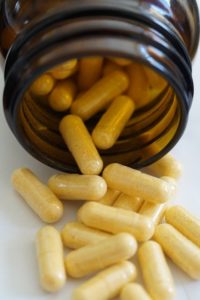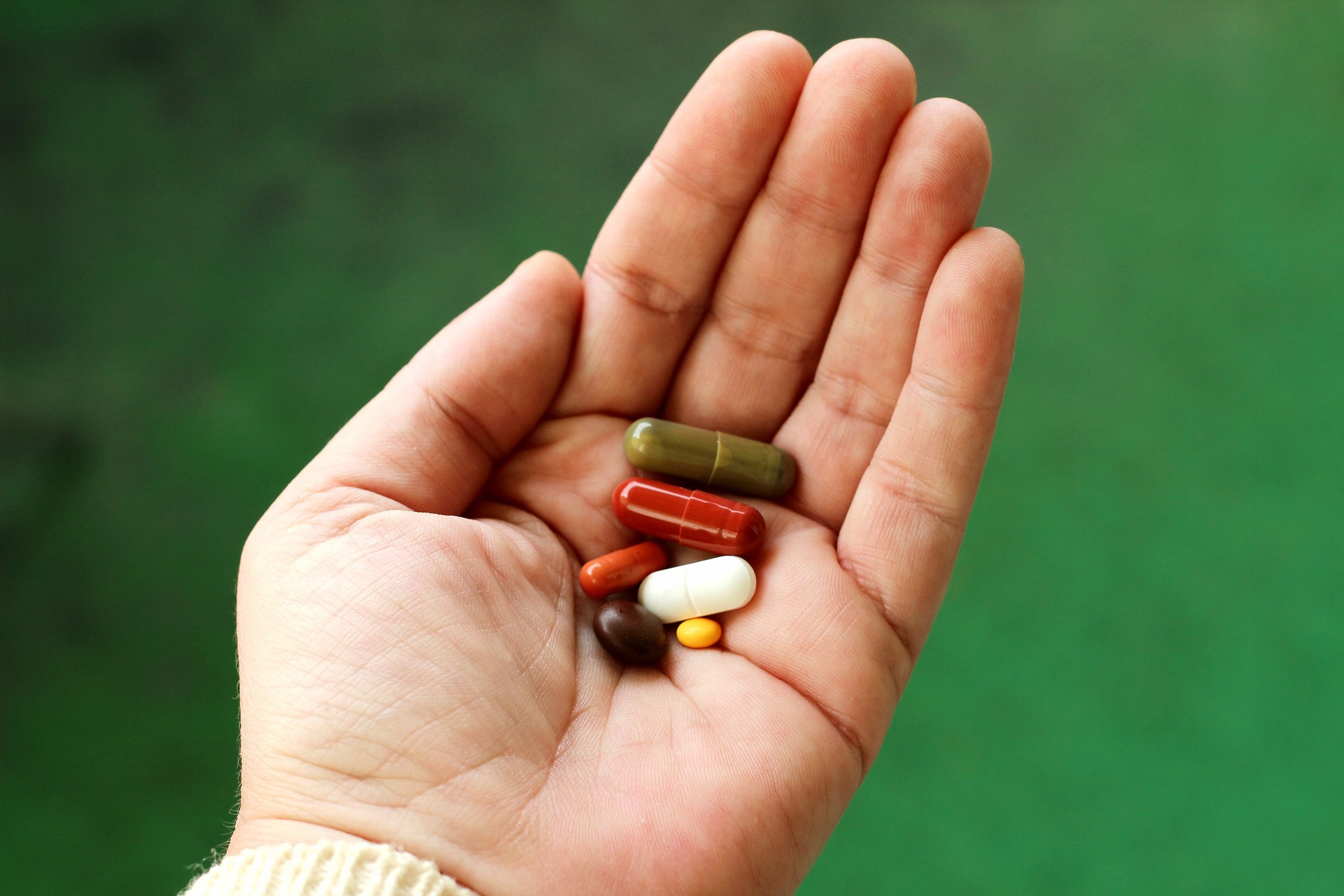How to Choose a Vitamin B12 Supplement
Vitamin B12 is one of the many essential B vitamins that our body requires. However, those following a plant-based diet may need to resort to supplements to meet the daily requirement. So how to choose a vitamin B12 supplement?
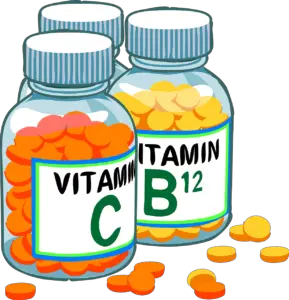
Before going to the supplements and what to look out for, it’s important to understand why they are so vital for our bodies in the first place. Vitamin B12 deficiency is a real thing, especially for vegans. So it warrants some extra care and management to ensure that you’re getting ample of it.
According to the National Health Institute, an adult needs 2.4 mcg of vitamin B12 daily. For pregnant and breastfeeding women, that amount is a bit higher.
Why is Vitamin B12 Important?
Vitamin B12 contains the mineral cobalt, which is why it’s also called cobalamin. It’s one of those nutrients that your body cannot produce on its own, so must receive through food or supplements.
While it’s primarily found in animal products, it’s also sold as a supplement or with fortified food. But why is vitamin B12 so important that it must be supplemented if you’re not getting enough through nutrition? Well, there are several reasons why:
Red Blood Formation
Vitamin B12 is crucial for the development of red blood cells.
Over time, a B12 deficiency can lead to fewer red blood cells and may even affect their shape and size. Typically, they are small and round, but without this crucial vitamin, they become larger and elongated. This makes it difficult for these cells to enter the bloodstream.
The reduction of red blood cells in the body may lead to anemia. Anemia occurs as a result of a lack of oxygen reaching the organs. This is major problem vegans have to face because of poor management of vitamin B12 intake.
When you’re anemic, you may feel fatigue, weakness, and headaches. All of that can be avoided by simply ensuring you’re getting ample vitamin B12.
Neurological Function
A study from the Journal of Alzheimer’s Disease states that vitamin B12 and omega-3 fatty acids may help slow down cognitive decline with age. This and several other such studies have shown that vitamin B12 is important for neurological function. It basically prevents the loss of neurons.

Loss of neurons is called brain atrophy, which is linked with neurological conditions such as dementia and Alzheimer’s disease. Although there’s room for more research in this area, it’s clear that vitamin B12 is all the more important for middle-aged people.
DNA Synthesis
Vitamin B12 is also vital for DNA synthesis, as a deficiency can mess up DNA and lead to serious diseases. The effects of vitamin B12 deficiency on red blood cells and neurons is also linked with its role in DNA synthesis.
A Greek paper in Frontiers summarizes the technical details of the role of vitamin B12 in DNA synthesis. In simpler words, B12 is responsible for the production of some enzymes and serums that are essential for the proper synthesis of DNA. This paper also suggests that vitamin B12 may even help prevent diseases.
Prevents Birth Defects
Vitamin B12 is extremely important for pregnant women as it helps with the growth of the fetus. The fetus uses vitamin B12 from the mother for neuron and brain development. If the mother is deficient in this vitamin, the risk of birth defects may get higher.

One study, published in Pediatrics, found that babies of women with vitamin B12 lower than 250 mg/dL have three times higher risk of birth defects. Vitamin B12 deficiency may also result in miscarriage or premature birth.
Bone Health
Research has shown that vitamin B12 also plays a role in maintaining proper bone health. Reduced bone density can lead to conditions like osteoporosis. This is all the more relevant for women who are typically at a higher risk of osteoporosis.
This assertion is backed by science. A Turkish study with 178 postmenopausal women found that osteoporosis in women could be linked with lower levels of vitamin B12 and higher levels of homocysteine.
Energy Boost
Vitamin B12 deficiency has been associated with weakness and low levels of energy. Even though there isn’t any proof that vitamin B12 directly provides energy, it’s known that B12 supplements do boost energy levels.
All vitamin Bs are important for adequate levels of energy, including B12. A deficiency in any of them would normally result in low levels of energy and a feeling of fatigue. In fact, it’s a symptom of B12 deficiency.
Research also shows that vitamin B12 deficiency may also be linked with depression. So supplements can help improve mood and get rid of depression symptoms.
Do Vegans Need Vitamin B12 Supplements?
Vitamin B12 is something vegans need to pay extra attention to. A deficiency in vitamin B12 can lead to anemia, neuron loss, and even depression.
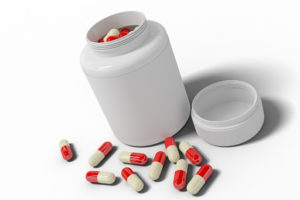
Since vegans don’t consume any animal products at all, it poses the threat of vitamin B12 deficiency. This vitamin is primarily found in animal protein, which means vegans have to resort to alternatives. This is one of the few side-effects of the diet, if you may, but it’s not to say that plant-based diets are bad.
Eating meat and other animal products can put you at risk of getting many diseases. So for vegans, the best option is to supplement this vitamin in their diet, either through fortified foods or supplements.
According to Web MD, vitamin B12 deficiency is common in all types of vegetarians, even those that do consume some form of animal products like dairy or eggs. So vitamin B12 supplements are extremely vital for those on a plant-based diet.
Vegans deficient in B12 may show the following signs:
- Fatigue
- Weakness
- Headaches
- Irregular heartbeat
- Coordination issues
- Muscle weakness
- Mood swings
- Depression symptoms
If you have any of the above signs as a vegan, you’re deficient in vitamin B12. If you’re a staunch vegan and you haven’t been very particular with B12 supplementation, you might want to get tested for vitamin B12 deficiency as well.
A long-term deficiency can lead to serious health issues, which is why it’s necessary to take the right dosage of this vitamin daily. If you keep taking the supplements, you can continue to follow a strictly vegan diet and enjoy the many health benefits it offers.
Vitamin B12 Fortified Food vs. Vitamin B12 Supplements
When it comes to vitamin B12 supplementation, you can either go with B12 fortified foods or supplements. If we compare the two options, supplements are perhaps a more efficient way to consume vitamin B12.
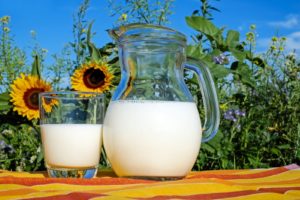
Foods that are fortified with vitamin B12 claim to help meet the daily requirements. However, they have varying amounts of the vitamin, which can make it difficult to get the right amount. With supplements, you know exactly how much of the vitamin you’re taking.
More importantly, the fortified vitamin may be synthetic and may not absorb as readily as the supplement made from non-synthetic sources.
Some of these fortified foods are highly processed and contain added sugars or oils. Therefore, the most straightforward and healthiest option is to just take supplements in the form that’s best for you.
How to Choose a Vitamin B12 Supplement?
Vitamin B12 supplements come in a variety of forms and from dozens of brands. So choosing the best vitamin B12 supplement can be a tedious task. Our bodies are quite unique and may absorb supplements differently.
Here’s what you need to look out for:
Vegan Ingredients
You should check the ingredients to make sure that the supplement is fully vegan. In other words, it shouldn’t come from animal sources. It’s not just about animal sources not being vegan, but also not the best kind to obtain this vitamin.
Look for non-GMO, vegan brands that use organic sources to supplement vitamin B12. Supplements aren’t that different from food, so you should treat them the same way and check the ingredients carefully to ensure they are all safe and healthy.
Methylcobalamin vs. Cyanocobalamin
Vitamin B12 supplements are of three types: methylcobalamin, cyanocobalamin, and hydroxycobalamin. The third type is not that common, so you’ll usually find the first two.
The kind that’s best for you depends on a number of factors, but generally speaking, cyanocobalamin is better than methylcobalamin. As Dr. Michael Greger explains in this video at NutritionFacts.org, cyanocobalamin is much more stable than methylcobalamin. Also, it’s more cost-effective, which makes it ideal for those who need it on a regular basis.
On the other hand, methyl (as it’s often labeled on supplements) may be better for people with kidney disease. Methyl may be easier to absorb than cyano B12, which is why it’s more expensive.
Then again, it depends on what form and how much of the supplement you’re taking. The video from NutritionFacts explains everything.
Form of Supplement (Tablets, sublingual, and liquid)
Vitamin B12 supplements most commonly come in the form of tablets and chewables. However, they also come as sublingual, sprays, and liquid forms.
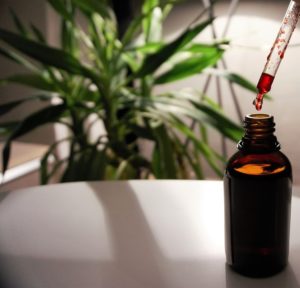
Sublingual is a tablet that melts under the tongue, turning into a liquid. The liquid form of supplement doesn’t require digestion, which improves its absorption rate.
However, when choosing liquid forms like drops, sublingual, and sprays, make sure to look at ingredients and avoid those with added sugars and favors.
Dosage
The amount of vitamin B12 in the supplements varies by different brands and forms of the supplement. Typically, it ranges from 500 mcg to 5000 mcg.
You want to pick a supplement that’s easy to manage based on the required dosage for you. The dosage varies depending on age and whether you’re deficient or not. Those who are already deficient and pregnant women require higher doses, at least 1000 mcg.
Here are videos from NutritionFacts.org that explain the optimal doses for adults, as well as kids, pregnant women, and seniors.
Best Vitamin B12 Supplements
Here are my top three picks for the best vitamin B12 supplement:
Nature Made Vitamin B12 Soft Gels
The Nature Made Vitamin B12 Supplements are soft gel tablets that dissolve quickly, resulting in prompt absorption. Each soft gel tablet provides 1000 mcg of vitamin B12. One bottle contains 150 tablets for 150 doses.
It’s a cyanocobalamin B12, which is more stable than methyl. This supplement, although great quality, isn’t vegan. It contains gelatin and beeswax. Also, if you have a soybean allergy, it’s not suitable for you.
It’s one of the oldest brands and is highly trusted by pharmacists. Taking it is super easy, as you just take it with water and any meal during the day.
Wellabs Vitamin B12 Sublingual Supplement
The Wellabs Vitamin B12 Sublingual Supplement comes in a 2 oz. bottle. The sublingual form has faster absorption than pills or chewables. The two dropper dose provides 5000 mcg of vitamin B12.
This is a premium-quality supplement made of methylcobalamin. With a higher bioavailability, it may give a boost of energy and improve your mood.
It’s made in the US, with the help of expert pharmacists and nutritionists. More importantly, it’s vegan and non-GMO.
Natrol Vitamin B12 Tablets
The Natrol Vitamin B12 supplements are high-dose tablets, with each giving 5000 mcg. Although these are in tablet form, they are designed to absorb relatively quickly.
It has a natural flavoring with a sweet strawberry flavor. Also, it’s 100% vegetarian, with no animal products, artificial flavors, or even soybeans.
The bottle contains 200 tablets, which makes it a good value for money too. You’re good for over six months. You can take it with or without water easily.
Wrap Up
Now that you fully understand how to choose a vitamin B12 supplement, you can start taking one today. If you’re a vegan, you should get tested for deficiency and make sure to take ample amount to cover your needs.
The resources in this post should help you determine the ideal dose. Alternatively, you can consult with your physician to find the optimal amount for you. Remember, if you’re avoiding animal products at all, vitamin B12 is non-negotiable. In simpler words, you have to take it, and it’s best if you do it in the form of supplements.
